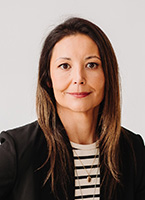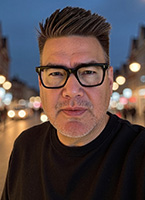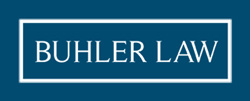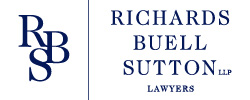Learn more about the speakers and presenters at the ALF Retreat 2025.
 Hugh Braker, KC, Political Executive, First Nations Summit
Hugh Braker, KC, Political Executive, First Nations Summit
After graduating from UBC Law School in 1983, Hugh practiced law in B.C. for 25+ years, specializing in Indigenous rights litigation. In 2022, Hugh was elected to serve a three-year term as a member of the Political Executive of the First Nations Summit. He concurrently serves on the BC First Nations Leadership Council.
Hugh is a citizen of the Tseshaht First Nation, which is located in Port Alberni on the west coast of Vancouver Island.
 Cynthia Callison, Founding Partner, Callison & Hanna
Cynthia Callison, Founding Partner, Callison & Hanna
Cynthia has reputation as a leading negotiator in innovative agreements between Indigenous peoples, governments, and resource developers. She currently serves on several boards which provide leadership for revitalizing Indigenous well-being. Cynthia is a member of the Tahltan Nation whose territory is the Stikine River Watershed in northwestern BC.
 Rosalind Campbell, Senior Associate, Arbutus Law Group
Rosalind Campbell, Senior Associate, Arbutus Law Group
Rosalind’s legal practice is grounded in the rights and title of Indigenous peoples with a focus on self-determination and self-governance. She has volunteered on committees of several provincial entities to assist with their implementation of some of the Truth and Reconciliation Commission’s Calls to Action, UNDRIP principles and MMIWG2S Inquiry recommendations.
Rosalind descends from the hən̓q̓əmin̓əm̓-speaking people at xʷməθkʷəy̓əm (Musqueam) and the hul̕q̓umin̓um̓-speaking people at snəneyməxʷ (Nanaimo). She served eight years as an elected councillor of the Musqueam Indian Band.
 Debra Febril, Nisga'a Lisims Government
Debra Febril, Nisga'a Lisims Government
Debra completed her B.A. and J.D. of Law at the Thompson Rivers University. After graduating from law school in 2014, she articled with Nisga'a Lisims Government where she continued to work for her Nation in various roles for six years. As a lawyer, she continued to focus in the areas of criminal, family, administrative and Indigenous laws. She has represented clients in countless mediations, negotiations, provincial court hearings and has also appeared before the Supreme Court of Canada.
As a Nisga’a woman who belongs to Wilps Bayt Neekhl, Debra has been trained since birth to serve her community with humility and respect.
 Debra Hanuse, Senior Policy Analyst, First Nations Summit
Debra Hanuse, Senior Policy Analyst, First Nations Summit
Debra is a member of the 'Namgis First Nation. After practising Aboriginal and corporate and commercial law for more than 20 years, Debra retired from the practice of law in 2010.
She has also served as the elected Chief the 'Namgis First Nation, the Chief Treaty Negotiator for the Tsawwassen First Nation, a Commissioner at the BC Treaty Commission, the Acting Director of Law and Legislation at the Assembly of First Nations and as Acting Executive Director at the BC Assembly of First Nations.
 Leah Mack, Partner, Mack Law Corp
Leah Mack, Partner, Mack Law Corp
Since being called to the bar in 2007, Leah has dedicated her career to working almost exclusively with Indigenous clients. She is deeply committed to listening, learning, and providing practical, supportive legal guidance tailored to the unique needs of each person and Nation. Her approach is rooted in collaboration, and she frequently travels to meet clients in their home communities—ensuring her legal practice reflects and respects each Nation’s distinct customs, laws, and traditions.
Born and raised in Victoria, Leah is a proud member of the Toquaht Nation on the west coast of Vancouver Island. Her journey has taken her across Canada, having lived in the Yukon, Nova Scotia, and Ontario, before returning to Victoria.
 Melanie Mortensen, Legislative Counsel, BC Public Service
Melanie Mortensen, Legislative Counsel, BC Public Service
Melanie is a Legislative Counsel with the BC Office of Legislative Counsel. Among other volunteer activities, she is a Director on the Board of the Métis Nation of Greater Victoria, a Member-at-Large of the Canadian Corporate Counsel Association, and Vice-President of the Institute of Political and Parliamentary Law. She is a sessional instructor teaching Legislative Drafting and Indigenous Law Drafting at the UVic Faculty of Law. Before her return home to B.C. in 2015, Melanie was a Parliamentary Counsel in the House of Commons and the Senate. Melanie is a member of the Métis Nation of British Columbia.
 Tamara Napoleon, Principal Lawyer, Miller Titerle + Company
Tamara Napoleon, Principal Lawyer, Miller Titerle + Company
Tamara is a member of Saulteau First Nations and among a handful of Indigenous female solicitors in Canada. At MT+Co., she co-leads the Indigenous Law Group. Tamara works for clients that demand greater equity, legacy, and equality in their business and governance affairs.
She hails from a long lineage of fierce, driven Cree women who, while driving her limits, also drive her to make change happen in all aspects of her life.
 Dr. Val Napoleon, Professor, Faculty of Law, University of Victoria
Dr. Val Napoleon, Professor, Faculty of Law, University of Victoria
Val has taught and published on aboriginal legal issues, Indigenous law and legal theories, Indigenous feminisms, governance, critical restorative justice, oral traditions and Indigenous legal research methodologies.
She is the co-founder of JD/JID dual law degree program in Indigenous legal orders and Canadian common law, and the founding director of the Indigenous Law Research Unit.
Val is from northeast British Columbia a member of Saulteau First Nation. She is also an adopted member of the Gitanyow House of Luuxhon, Ganada Clan.
 Douglas S. White, KC, Special Counsel to the Premier on Indigenous Reconciliation
Douglas S. White, KC, Special Counsel to the Premier on Indigenous Reconciliation
Doug is a member, as well as former chief and councillor, of the Snuneymuxw First Nation. Prior to his appointment as Special Counsel in 2022, Doug served as Chair of the BC First Nations Justice Council and Co-Chair of BC’s Provincial Advisory Committee for Indigenous and Specialized Courts and Related Initiatives. He is a past member of the First Nations Summit Task Group and the BC First Nations Leadership Council, where he advocated on behalf of BC First Nations with the provincial and national governments, and the United Nations.












